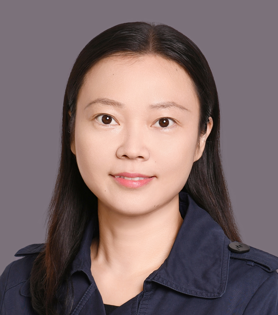
Keynote Speakers
KEYNOTE SPEAKERS
Prof. Xiyuan Chen, Southeast University, China (IEEE Senior Member) |
| The recipient of Southeast University’s first Young Faculty Teaching and Research Funding Program (2003), selected in 2006 for the Ministry of Education’s “New Century Talent Support Program” and Jiangsu Province’s “Qinglan Project” training program, became a Jiangsu Province “Six Talent Peaks” training candidate (Category A) in 2008, and was honored with the China Industry-University-Research Cooperation Innovation Award in 2015. He has received honors including Outstanding Communist Party Member of Southeast University, Advanced Individual in the Pioneer and Excellence Competition, and Excellent Supervisor of Southeast University. He currently serves concurrently as the Vice Chairman of the Academic Committee on Ship Instruments and Equipment of the China Society of Naval Architects and Marine Engineers, director of the China Instrument and Control Society, director of the China Society of Naval Architects and Marine Engineers, director of the China Ocean Engineering Consulting Association, vice chairman of the Jiangsu Association for Scientific Instrumentation, secretary general of the 10th Council of the Jiangsu Instrument and Control Society, member of the Jiangsu Graduate Education Steering Committee for Engineering (Category 1), member of the 10th Jiangsu Association for Science and Technology, invited reviewer for over 60 high-level domestic and international SCI/EI journals, communication review expert for various National Natural Science Foundation of China projects including General, Key, and Outstanding Youth programs, communication reviewer for national and Ministry of Education scientific projects and award evaluations, and the “Ten Thousand Talents Plan,” among others. |
Title: Key Technologies for Environmental Perception and Navigation Planning of USVs Abstract: As marine intelligent technology advances, Unmanned Surface Vehicles (USVs) have become a global maritime research focus, with development trends shifting toward higher autonomy and adaptability to complex sea conditions. However, challenges persist—such as low environmental perception accuracy in dynamic scenarios, weak path planning robustness, and difficulties complying with international navigation rules without prior information. This report focuses on the Key Technologies for Environmental Perception and Navigation Planning of USVs, addressing these pain points. We have systematically conducted research on the development trends of USV models in recent years, and in this presentation, we provide a detailed explanation of the development trends in USVs’ perception and navigation technologies. For key issues in these fields, we present our team’s latest technical research routes as well as the demonstration of research results—covering innovations from high-precision obstacle detection to robust path planning, which aim to tackle core challenges in USV autonomous operations and offer practical technical references for their intelligent advancement. |
Prof. Azlan Mohd Zain, Universiti Teknologi Malaysia, Malaysia (H-index: 42) |
| Azlan Mohd Zain (Member, IEEE) received the master’s degree in science (productivity and quality improvement) from Universiti Kebangsaan Malaysia (UKM) and the Ph.D. degree in computer science from Universiti Teknologi Malaysia (UTM), in 2010. He is currently a Professor with the Faculty of Engineering, School of Computing, UTM. He is also the Director of the UTM Big Data Research Centre. As an academic staff, he has successfully supervised more than 25 postgraduate students and received more than 20 research grant funding to support research students. He has published more than 100 research papers. He has been invited as keynote speaker at over five international conferences, serves on numerous committees, and has served on editorial board for three international journals. |
Prof. Celimuge Wu, The University of Electro-Communications, Japan (IEEE Senior Member) |
Celimuge Wu received his PhD degree from The University of Electro-Communications, Japan. He is currently a professor and the director of Meta-Networking Research Center, The University of Electro-Communications. His research interests include Vehicular Networks, Edge Computing, IoT, and AI for Wireless Networking and Computing. He serves as an associate editor of IEEE Transactions on Cognitive Communications and Networking, IEEE Transactions on Network Science and Engineering, and IEEE Transactions on Green Communications and Networking. He is Vice Chair (Asia Pacific) of IEEE Technical Committee on Big Data (TCBD). He is a recipient of 2021 IEEE Communications Society Outstanding Paper Award, 2021 IEEE Internet of Things Journal Best Paper Award, IEEE Computer Society 2020 Best Paper Award and IEEE Computer Society 2019 Best Paper Award Runner-Up. He is an IEEE Vehicular Technology Society Distinguished Lecturer. He is aForeign Fellow of The Engineering Academy of Japan. |
Title: Semantic CommunicationsSystems for Remote Driving
Abstract: The explosive growth of data, the continuous surge in the number of connected devices, and the increasing demand for real-time applications are posing unprecedented challenges to existing network architectures. As an emerging communication paradigm to address this trend, semantic communications have attracted widespread attention in recent years. Taking video transmission in remote driving as an example, this talk introduces an innovative semantic communication system that can more effectively deliver video data. Experimental results based on the prototype system demonstrate that the proposed system achieves significant performance improvements compared with both existing semantic communication methods and traditional non-semantic communication approaches. |
Prof. Yi Xu, Anhui University, China |
Yi Xu is a professor of School of Computer Science and Technology, Anhui University, China. Her research interests include intelligent computing, granular computing and edge computing. She has published over 60 papers in influential international academic journals and at various conferences. She has led many national and provincial research projects, including those funded by the National Natural Science Foundation of China and the Natural Science Foundation of Anhui Province. She serves as a member of CAAI’s Professional Committee on Granular Computing and Knowledge Analysis and a senior member of CCF. |
Title: UAV Intelligent Logistics System Based on Cloud-Edge-Device Collaboration
Abstract: Last-mile delivery is the final stage of logistics that directly interacts with customers, accounting for approximately 30%-50% of the total logistics cost. This stage is characterized by concentrated customer contact points and high sensitivity to timeliness. Urban deliveries often face challenges such as traffic congestion and high labor costs. With the rapid development of Internet of Things (IoT) technology, drone delivery has emerged as an innovative solution to the last-mile problem. This report focuses on addressing the high cost and low efficiency of last-mile delivery by constructing an intelligent drone logistics system based on a cloud-edge-device three-tier collaborative architecture to achieve cost reduction and efficiency improvement in logistics services. It introduces related research work centered on the effective management of computing resources within the cloud-edge-device architecture, accurate identification of target recipients, as well as data security and privacy protection. |



